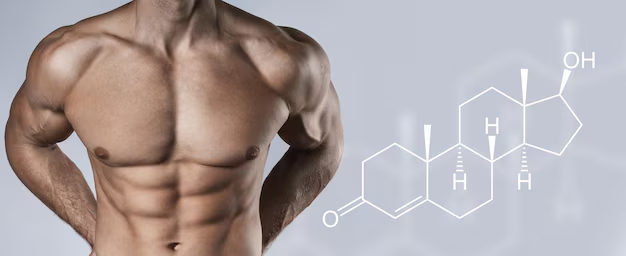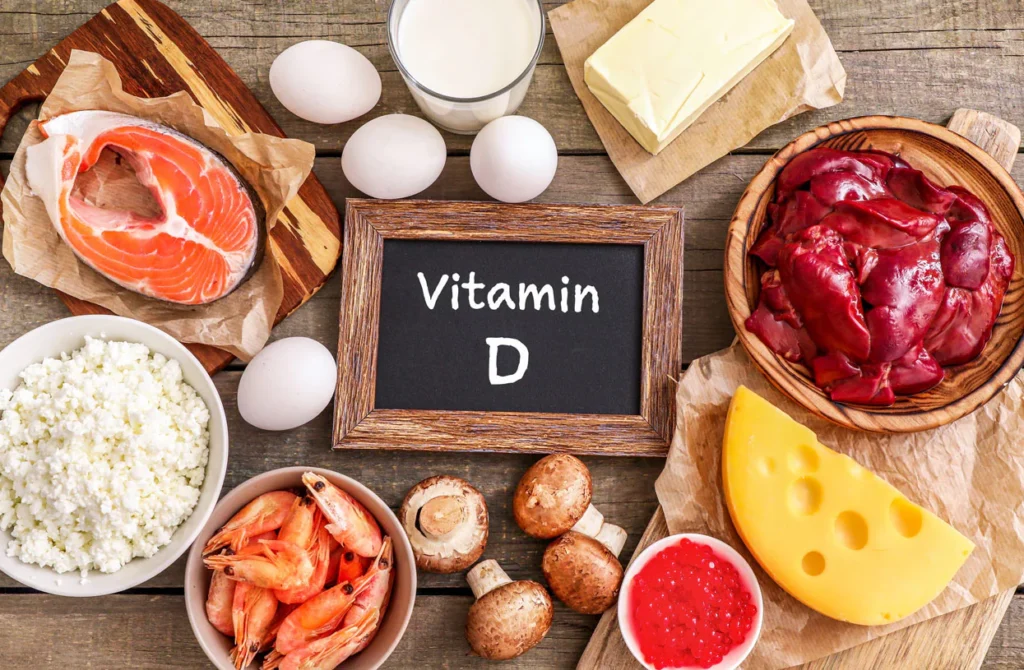Testosterone is the primary male sex hormone, though it is also present in females at much lower levels. It plays a crucial role in the development of male reproductive tissues such as the testes and prostate, but it also has widespread effects on many systems in the body. Testosterone is not only involved in sexual function and fertility, but it is also critical for muscle mass, bone density, red blood cell production, and the regulation of mood and energy levels.
As men age, their testosterone levels naturally begin to decline, typically after the age of 30, at a rate of about 1% per year. Low testosterone (often called “low T”) can result in a variety of symptoms, including reduced libido, fatigue, depression, decreased muscle mass, and increased body fat. Understanding how testosterone works, its impact on the body, and how to naturally maintain or boost its levels is key to maintaining overall health and well-being.
The Importance of Testosterone

Testosterone is sometimes referred to as the “vital male hormone” because it influences a wide range of physiological functions. Here’s a look at some of the most critical aspects of testosterone:
Sexual Function and Libido
Testosterone is crucial for regulating sexual desire and performance in men. It affects both the production of sperm and the maintenance of erectile function. Low testosterone levels often result in a reduced sex drive, erectile dysfunction (difficulty maintaining an erection), and in some cases, infertility. As a key hormone influencing sexual health, testosterone helps sustain a healthy libido and sexual function, making it an essential part of male reproductive health.
Muscle Mass and Strength
Testosterone plays an important role in muscle development. As an anabolic hormone, it promotes the growth of muscle tissue by enhancing protein synthesis in muscle cells. This process is vital for increasing muscle mass, strength, and overall physical performance. When testosterone levels are low, men may experience a noticeable decrease in muscle mass, reduced strength, and a decrease in overall physical fitness and endurance, which can impact daily activities and exercise performance.
Bone Health
Testosterone helps preserve bone density by stimulating the production of bone-forming cells. When testosterone levels drop, bones can become weaker, increasing the risk of conditions like osteoporosis, which is characterized by fragile and brittle bones. Men with low testosterone are more likely to experience bone-related issues, including fractures or breaks, as their bone strength decreases over time. This underscores the importance of maintaining healthy testosterone levels to protect bone health.
Mood and Mental Clarity
Testosterone has a significant impact on mental and emotional well-being. Men with low testosterone levels often experience mood swings, depression, irritability, and increased anxiety. Low levels of this hormone can also impair cognitive function, leading to forgetfulness, difficulty concentrating, and a lack of mental clarity. Testosterone helps regulate mood by influencing the brain’s neurotransmitter activity, ensuring a stable and balanced emotional state, as well as cognitive function.
Fat Distribution
Testosterone plays a key role in how fat is distributed in the body. Healthy levels of testosterone help maintain a balanced fat distribution, typically leading to a leaner physique. When testosterone levels drop, men may notice an increase in abdominal fat, particularly around the waist, which can contribute to metabolic issues such as obesity and increase the risk of developing type 2 diabetes. Maintaining healthy testosterone levels supports a healthier body composition and metabolism.
Red Blood Cell Production
Testosterone helps stimulate the production of red blood cells in the bone marrow, which are essential for transporting oxygen throughout the body. Adequate levels of testosterone are necessary to maintain a proper red blood cell count, which helps prevent conditions like anemia. Low testosterone can lead to a reduced red blood cell count, which results in fatigue, weakness, and reduced energy levels, as the body struggles to deliver enough oxygen to tissues and organs.
Cardiovascular Health
Testosterone is linked to cardiovascular health, with research showing that optimal testosterone levels can positively impact heart function. Healthy testosterone levels are associated with improved heart health, better circulation, reduced inflammation, and healthier cholesterol levels. However, excessive levels of testosterone can have negative effects, such as increasing the risk of heart disease. Maintaining balanced testosterone levels is important for overall heart health, ensuring proper blood flow and reducing inflammation throughout the body.
Causes of Low Testosterone
While aging is the primary cause of declining testosterone levels, several other factors can contribute to low testosterone:

Chronic Stress: When the body experiences stress, it produces more cortisol, a hormone that can interfere with the production of testosterone. High cortisol levels over time can suppress the body’s ability to produce testosterone, potentially leading to imbalances.
Obesity: Carrying excess body fat, especially around the abdomen, is linked to lower testosterone levels. The more body fat a person has, the more likely it is that testosterone production will be reduced, contributing to potential health issues related to hormone imbalance.
Sleep Deprivation: Not getting enough sleep or experiencing poor-quality sleep can significantly lower testosterone levels. Sleep is crucial for hormone regulation, and inadequate rest can interfere with the body’s natural production of testosterone, leading to fatigue and other health concerns.
Poor Diet: A diet that lacks important nutrients such as vitamins and minerals can negatively affect testosterone production. Proper nutrition is essential for maintaining healthy hormone levels, and a lack of essential nutrients can lead to a decline in testosterone.
Medical Conditions: Certain health conditions, like diabetes, hypogonadism (low testosterone production), and thyroid disorders, can cause testosterone levels to drop. These conditions can disrupt normal hormone production and lead to imbalances that affect overall health.
Medications: Some medications, such as opiates and steroids, can have a negative impact on testosterone production. Long-term use of these drugs may disrupt the body’s natural hormone levels and contribute to lower testosterone.
Natural Ways to Boost Testosterone Levels
There are several natural methods to support and potentially boost testosterone levels. Here are 10 effective and evidence-based ways to enhance testosterone production:
- Exercise Regularly, Especially Strength Training and High-Intensity Interval Training (HIIT)
Exercise is one of the most effective natural ways to boost testosterone levels. Research shows that both strength training, like weightlifting, and high-intensity interval training (HIIT) can significantly raise testosterone levels in the body. Strength training engages large muscle groups, promoting hormone production, while HIIT, which involves intense activity followed by rest, improves metabolic function and fat loss. Incorporating both types of exercise can help enhance testosterone levels, supporting muscle growth, strength, and overall health.

Strength training is highly effective in boosting testosterone levels by engaging large muscle groups. Exercises that work multiple muscles at once, such as squats, deadlifts, and bench presses, are particularly powerful in stimulating testosterone production. These compound exercises require significant effort and energy, signaling the body to release more testosterone to support muscle growth, recovery, and strength. Regular strength training helps maintain muscle mass, improve overall physical performance, and promote healthy hormone levels.
High-intensity interval training (HIIT) involves alternating short bursts of intense exercise with periods of rest or lower-intensity activity. This type of training has been shown to elevate testosterone levels by boosting metabolic function and promoting fat loss. The intensity of HIIT workouts increases the body’s energy expenditure, improving cardiovascular health and stimulating the production of hormones, including testosterone. As fat loss is achieved, the body’s overall hormonal balance improves, further supporting testosterone production and overall well-being.
- Eat a Balanced Diet with Nutrients that Support Testosterone
A healthy, balanced diet is essential for maintaining optimal testosterone levels. Certain nutrients are particularly important for testosterone production, including healthy fats, proteins, vitamins like D and B, and minerals such as zinc and magnesium. Ensuring adequate intake of these nutrients supports the body’s ability to produce testosterone, helping to maintain hormonal balance and overall health.
Zinc: Zinc is essential for testosterone production. Foods rich in zinc include oysters, beef, spinach, and pumpkin seeds, which help support healthy hormone levels.
Vitamin D: Low vitamin D levels are linked to reduced testosterone. Fatty fish like salmon and mackerel, egg yolks, and fortified foods are great sources. Sunlight exposure is also a natural way to boost vitamin D levels.
Healthy Fats: Adequate intake of healthy fats supports testosterone production. Focus on monounsaturated fats from avocados, olive oil, and nuts, as well as omega-3 fatty acids from fatty fish and flaxseeds.
Magnesium: Magnesium helps with testosterone production and can be found in foods like spinach, almonds, and dark chocolate, promoting overall hormonal balance.
- Get Enough Sleep
Adequate sleep is crucial for maintaining optimal testosterone levels. Testosterone naturally peaks during sleep, and chronic sleep deprivation can lead to a significant decline in hormone production. To support healthy testosterone levels, aim for 7–9 hours of quality sleep each night. Creating a sleep-friendly environment can enhance rest; consider reducing screen time before bed to limit blue light exposure, cutting back on caffeine, and making your bedroom dark and quiet. A consistent sleep routine helps regulate the body’s natural rhythm, promoting better sleep quality and ensuring the body has enough time to restore and produce essential hormones.
- Manage Stress

Chronic stress triggers the release of cortisol, a hormone that can interfere with testosterone production. Since cortisol and testosterone have an inverse relationship, high cortisol levels can suppress testosterone. To effectively manage stress, consider incorporating practices such as meditation, deep breathing exercises, yoga, or tai chi. Engaging in relaxing activities like hobbies, spending time with loved ones, or enjoying nature can also help reduce stress and support healthy testosterone levels.
Meditation and deep breathing exercises to calm the mind.
Yoga and tai chi to improve physical relaxation.
Engaging in hobbies, spending time with loved ones, or being in nature to unwind.
- Maintain a Healthy Weight
Obesity, particularly excess abdominal fat, is closely linked to low testosterone levels. Fat cells contain an enzyme called aromatase, which converts testosterone into estrogen, lowering the amount of testosterone in the body. The more abdominal fat a person carries, the more aromatase is produced, further contributing to lower testosterone levels.
Reducing body fat through regular exercise and a healthy diet can help boost testosterone production. Studies have shown that even a modest weight loss of 5–10% of total body weight can lead to significant increases in testosterone levels. By focusing on fat reduction, men can improve hormonal balance and overall health.
- Avoid Excessive Alcohol Consumption
Moderate alcohol consumption is usually considered safe, but excessive drinking can have a negative impact on testosterone levels. Chronic heavy drinking can interfere with the body’s ability to produce testosterone by damaging the testicles, which are responsible for hormone production. This can also lead to reduced sperm production and hormonal imbalances.
To protect your testosterone levels, it’s important to limit alcohol intake to moderate amounts. Generally, this means no more than one to two drinks per day. By drinking in moderation, you can help maintain healthy testosterone production and reduce the risk of long-term health issues related to excessive alcohol consumption.
- Optimize Vitamin D Levels

Vitamin D plays a crucial role in overall health, with research showing a strong connection between vitamin D levels and testosterone production. Low vitamin D levels are linked to reduced testosterone levels, while men with vitamin D deficiency may experience improved testosterone levels with supplementation.
The best way to get vitamin D is through sun exposure, but for those with limited sunlight, especially in winter months, supplementation with vitamin D3 can be a highly effective alternative. Ensuring adequate vitamin D levels helps support not only testosterone production but also overall well-being and immune function.
- Take Natural Supplements (With Caution)
Several natural supplements have been shown to support testosterone production. Some popular options include:
Fenugreek: This herb has been shown to boost testosterone levels and enhance sexual function, supporting overall male health.
Ginger: Research suggests that ginger can increase testosterone levels and improve fertility in men, promoting hormonal balance and reproductive health.
Ashwagandha: Known as an adaptogen, ashwagandha helps reduce cortisol levels, which in turn supports the production of testosterone.
Before taking any supplements, it’s important to consult with a healthcare provider to ensure they are safe and effective for your individual needs.
- Increase Healthy Fats in Your Diet
Healthy fats are essential for hormone production, including testosterone. In addition to sources like avocado, nuts, and olive oil, it’s important to include omega-3 fatty acids from foods like fatty fish, flaxseeds, and chia seeds. Omega-3s are known for their ability to reduce inflammation and support overall health, which can have a positive effect on testosterone levels. By incorporating these healthy fats into your diet, you can help maintain hormonal balance, improve cardiovascular health, and promote overall well-being, indirectly supporting testosterone production.
- Avoid Endocrine Disruptors
Environmental chemicals, known as endocrine disruptors, can interfere with hormone production. Common endocrine disruptors include phthalates, bisphenol A (BPA), and certain pesticides. These chemicals can be found in plastic containers, personal care products, and household cleaning agents. To reduce exposure, consider switching to natural or organic products, using glass or stainless steel containers instead of plastic, and choosing organic produce when possible.

Conclusion: Maintaining Healthy Testosterone Levels Naturally
Testosterone is a vital hormone that influences many aspects of health, from sexual function to muscle mass to mental well-being. As testosterone naturally declines with age, adopting lifestyle changes such as regular exercise, a nutrient-dense diet, proper sleep, stress management, and weight maintenance can help mitigate this decline and support healthy testosterone levels.
While testosterone replacement therapy (TRT) may be an option for some individuals, these natural approaches should always be considered first, as they not only support testosterone production but also contribute to overall health. Always consult with a healthcare provider before making significant changes to your lifestyle or starting any supplements. By taking proactive steps, you can maintain healthy testosterone levels and enjoy a higher quality of life as you age.
FAQs
- Can women also boost their testosterone levels naturally ?
Yes, women do produce testosterone, though in much smaller amounts compared to men. It plays an important role in maintaining muscle mass, energy, and libido. Women can benefit from the same strategies to boost testosterone as men, such as regular exercise, a balanced diet, managing stress, and ensuring adequate sleep. However, women should be mindful that excessive testosterone levels can lead to unwanted effects like voice deepening and excessive hair growth, so moderation is key.
- How does stress affect testosterone production ?
Chronic stress significantly impacts testosterone levels by increasing cortisol, the body’s primary stress hormone. Elevated cortisol levels can suppress testosterone production, leading to fatigue, muscle loss, weight gain, and mood swings. Managing stress through practices like meditation, deep breathing, physical activity, and adequate rest can help keep cortisol levels balanced and prevent testosterone suppression.
- What are some natural foods that help boost testosterone ?
There are various foods that naturally support testosterone production. For example, oysters are high in zinc, an essential mineral for testosterone synthesis. Fatty fish like salmon, mackerel, and sardines are packed with omega-3 fatty acids, which help reduce inflammation and boost testosterone. Eggs provide a good amount of vitamin D, which is linked to higher testosterone levels. Leafy greens such as spinach and kale are rich in magnesium, another key nutrient for hormone regulation. Including these foods in your diet can help optimize testosterone levels.
- Can losing weight naturally increase testosterone ?
Yes, weight loss, particularly the reduction of abdominal fat, can lead to higher testosterone levels. Excess fat, especially around the belly, produces an enzyme called aromatase, which converts testosterone into estrogen. By shedding excess weight through a healthy diet and regular exercise, you can reduce this conversion and help maintain or even boost testosterone production. This is one of the reasons why maintaining a healthy body composition is important as men age.
- Does aging always lead to low testosterone ?
Although testosterone levels naturally decline with age, not all men will experience drastic drops or symptoms of low testosterone. Some men may maintain relatively stable testosterone levels well into their later years. Healthy lifestyle choices, such as staying physically active, eating nutrient-dense foods, reducing stress, and getting sufficient sleep, can help preserve testosterone levels and mitigate the effects of aging. However, significant declines in testosterone might require medical evaluation and intervention if symptoms are severe.


